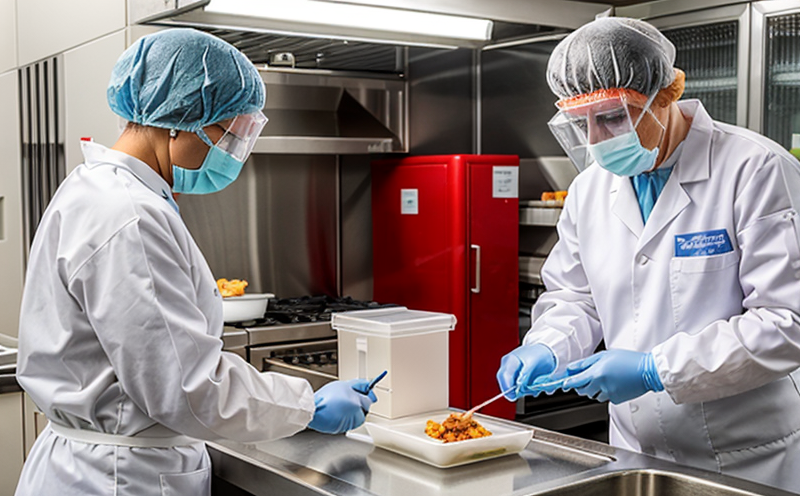AOAC 2022.04 Viral Pathogen Screening in Bottled Juices
The AOAC International method 2022.04 is a standardized protocol designed to screen for viral pathogens in bottled juices, ensuring the safety and quality of food products. This method employs advanced molecular techniques, including reverse transcription polymerase chain reaction (RT-PCR) and nucleic acid extraction methods, to detect potential contaminants such as norovirus, hepatitis A virus, and rotavirus.
The testing process begins with a rigorous sample collection procedure, where bottles are randomly selected from production lines or distribution centers. The collected samples undergo initial processing steps that include homogenization and centrifugation to separate the viral particles from the juice matrix. This preparatory stage ensures uniformity in specimen quality for downstream analysis.
The core of the AOAC 2022.04 method involves RT-PCR amplification, where specific primers are designed to target conserved regions of known pathogens. Once amplified, the nucleic acids are analyzed using a real-time PCR instrument capable of quantifying the presence and concentration of viral RNA or DNA. This step is critical as it allows for accurate detection thresholds that can differentiate between trace amounts and significant contamination.
Following amplification, the results are interpreted against established limits set by international standards (ISO 19732:2015 for norovirus). Compliance with these standards ensures that food products meet regulatory requirements for safety. The testing process is validated using certified reference materials to ensure reliability and reproducibility.
The AOAC 2022.04 method is particularly important in the context of bottled juice production, where multiple batches are produced daily under varying conditions. By employing this standardized protocol, manufacturers can identify potential contamination risks early on, enabling timely corrective actions if needed. This not only protects consumer health but also enhances brand reputation and market trust.
Customer Impact and Satisfaction
- Improved Product Safety: Detection of viral pathogens ensures that products are free from harmful contaminants, thus enhancing public confidence.
- Enhanced Brand Reputation: Compliance with international standards demonstrates a commitment to quality and consumer safety.
- Increased Market Trust: Repeated successful tests under this protocol build long-term relationships with consumers and retailers.
International Acceptance and Recognition
- The AOAC 2022.04 method is widely recognized by regulatory bodies in Europe, North America, and Asia, ensuring global acceptance of the test results.
- It aligns with ISO standards for food safety, providing a harmonized approach to pathogen detection across different regions.
The AOAC 2022.04 method plays a crucial role in safeguarding public health by preventing the spread of viral pathogens through contaminated bottled juices. By adhering to this standardized protocol, manufacturers can ensure that their products meet stringent international safety standards and contribute to overall food security.
Environmental and Sustainability Contributions
The AOAC 2022.04 method not only ensures product safety but also contributes positively to environmental sustainability by minimizing waste through efficient sample collection and processing techniques. By identifying contamination early, manufacturers can reduce the amount of potentially harmful products reaching consumers.
Furthermore, adherence to this standardized protocol promotes responsible resource management within the food industry. It encourages the use of advanced technologies that are energy-efficient and less wasteful in their operations. This aligns with broader sustainability goals set by international organizations such as the United Nations Environment Programme (UNEP).





